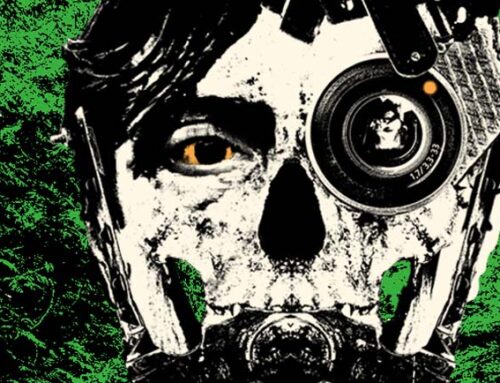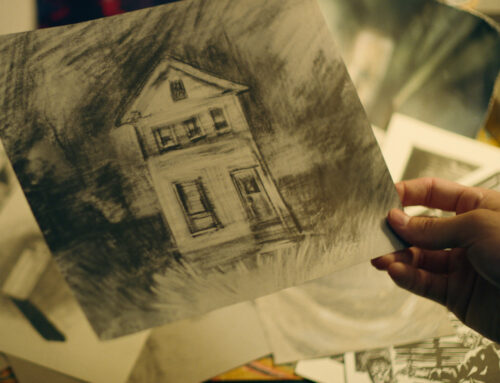Recently as I was browsing the horror subreddit, as I often do to pass the time and keep up to date on the latest news, something unique caught my eye. /r/horror, or Dreadit, as it’s come to be known by the community is a gathering spot where enthusiasts come to speculate on the newest horror gossip, argue about the top scary movies of various genres, and occasionally post their own unique content. Shell falls into that last category, and serves as both a stunning artistic accomplishment, and an unflinching meditation on suffering. A film created to help director Daniel Ahrens process his dad’s cancer, my initial expectation was that Shell would resemble the typical cinematic portrayal of dealing with disease as a process of finding dignity and acceptance.
No one could blame Ahrens if this was the path he took with this film, dealing with the mortality of those you love can be a harrowing process and film as a means of expression is as valid a tool as any for finding resolution in that journey. This was not the path he would choose however, instead crafing a bleak hellscape, unadorned or embellished by any false sentiment that would blunt the depravity of the disease. In this barren purgatory, the cancer is made flesh and draws its deviant satisfaction from spreading the seed of its corruption. Unfeeling yet enraptured by the spread of its effects, the disease stalks its prey and with a final act of sacrifice, becomes death itself and embraces its unknowing victim in their shared destruction.
Written and directed by Daniel Ahrens, along with a team of 5 artists and animators, Shell features CG that would be impressive for a team several times their size. The soundtrack is provided by The Haxan Cloak and provides a perfect balance, contrasting the serene with an abrasive, industrial dirge. While some may object to the raw portrayal of cancer the film presents, it is important to respect the process and the divergent paths taken to come to terms with grief. Just as facing the horrific can serve to create acceptance of our own mortality, looking upon the unadorned face of disease may also be essential to our understanding of the fragility of human life. Understanding is not the end of suffering, but only through living in reality with all of its ugliness can we hope to find peace.
One Comment
Leave A Comment
You must be logged in to post a comment.








Great post, thank you for sharing!